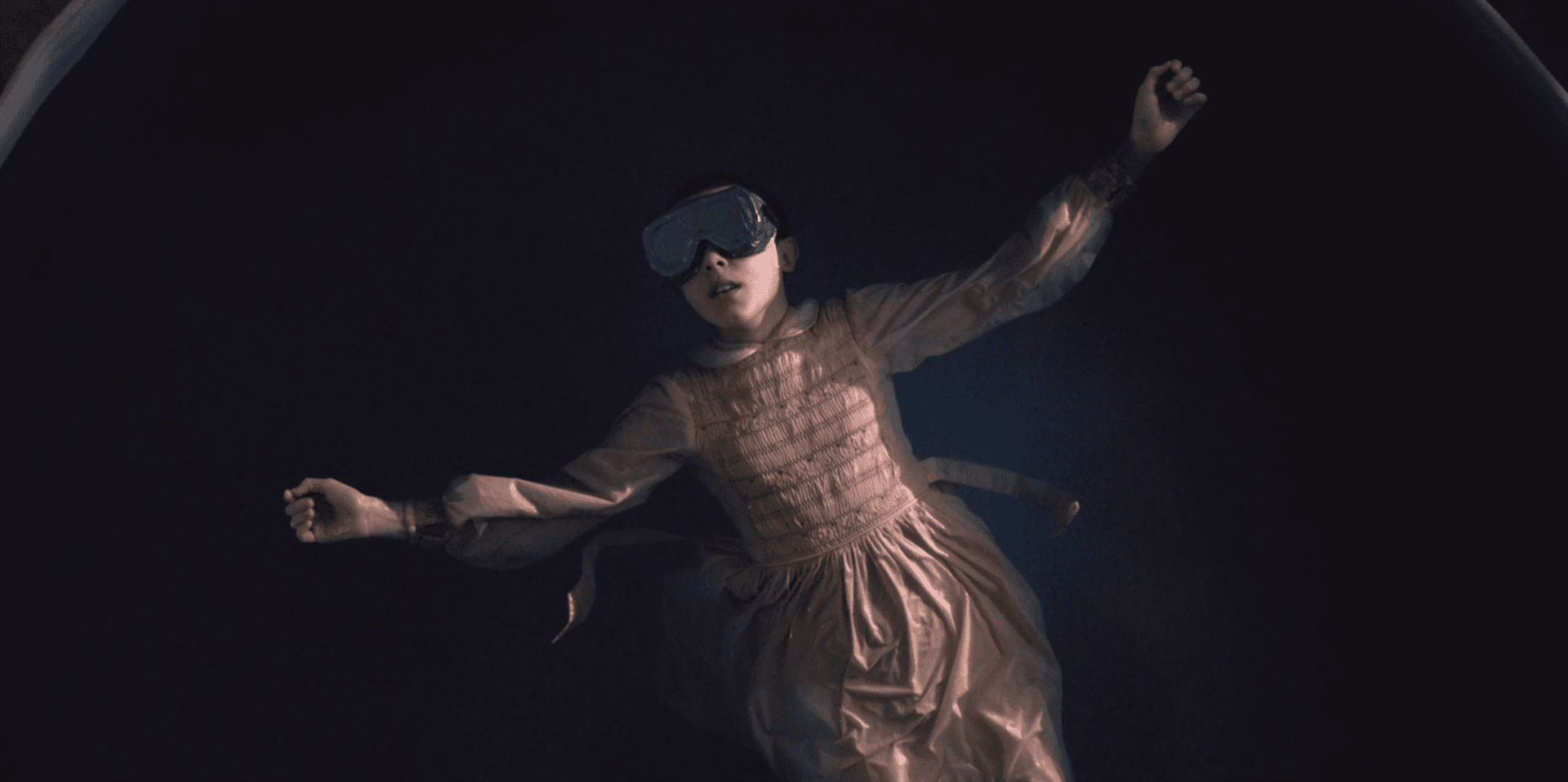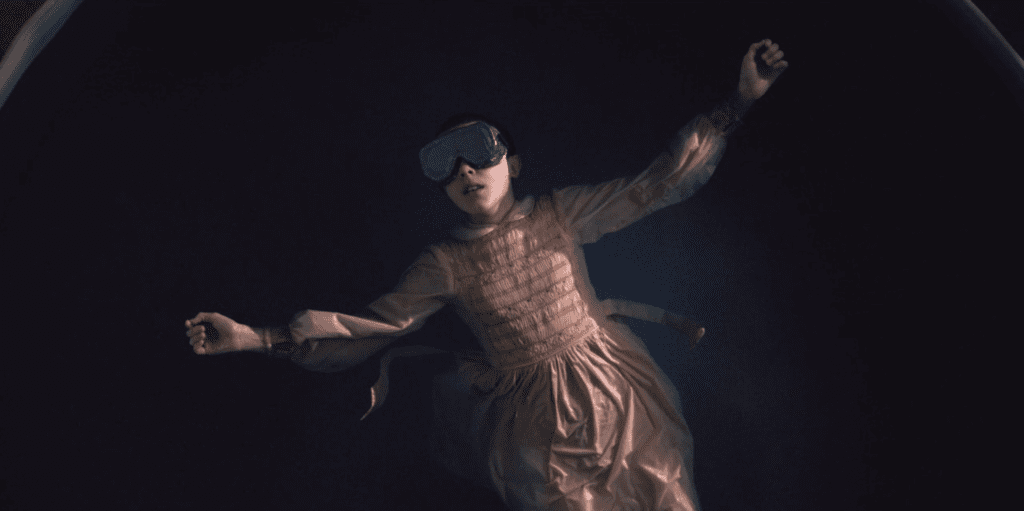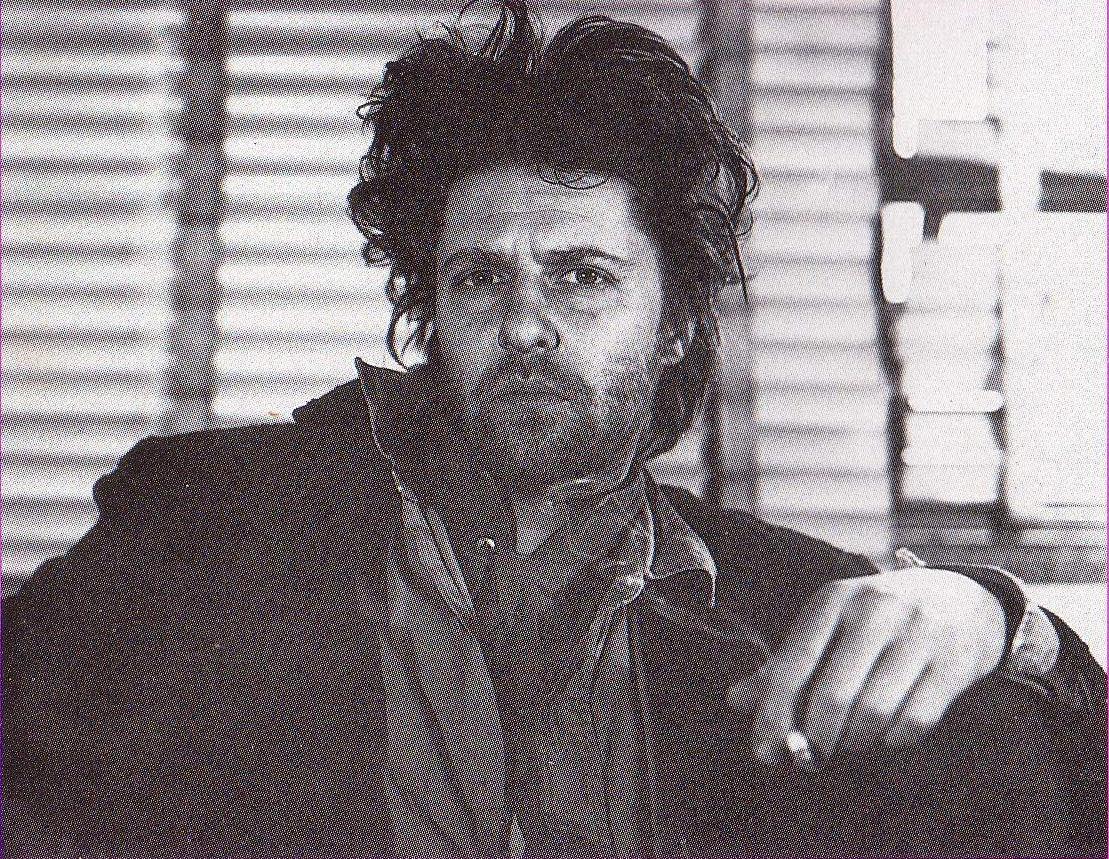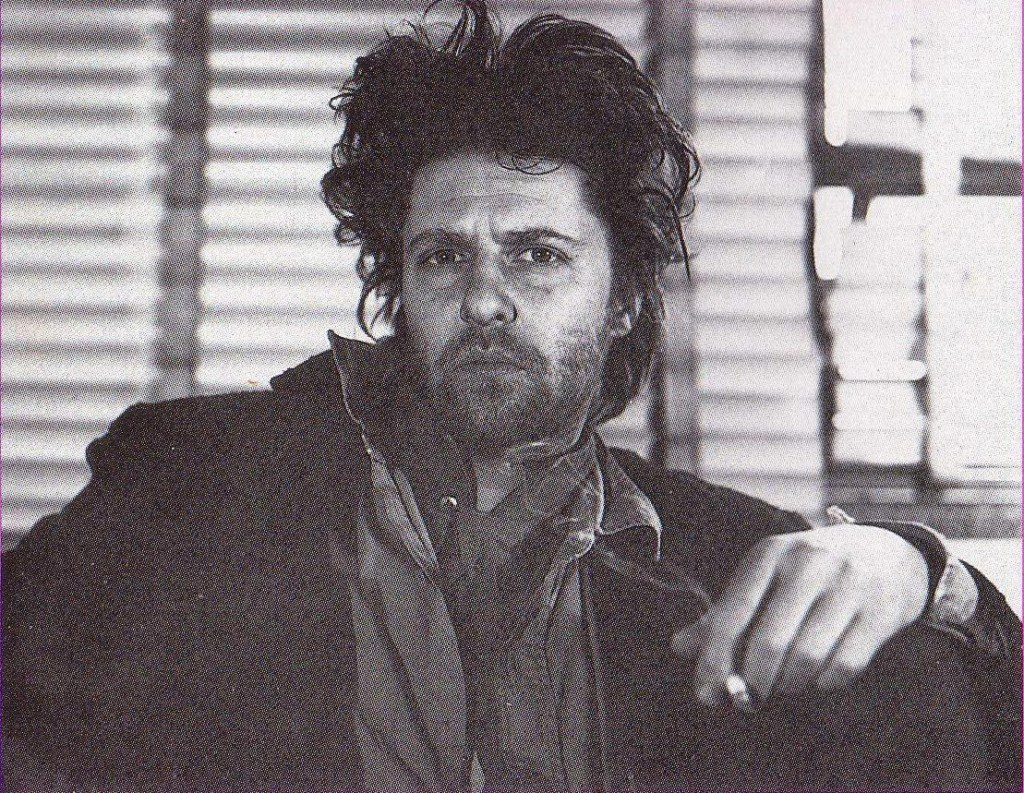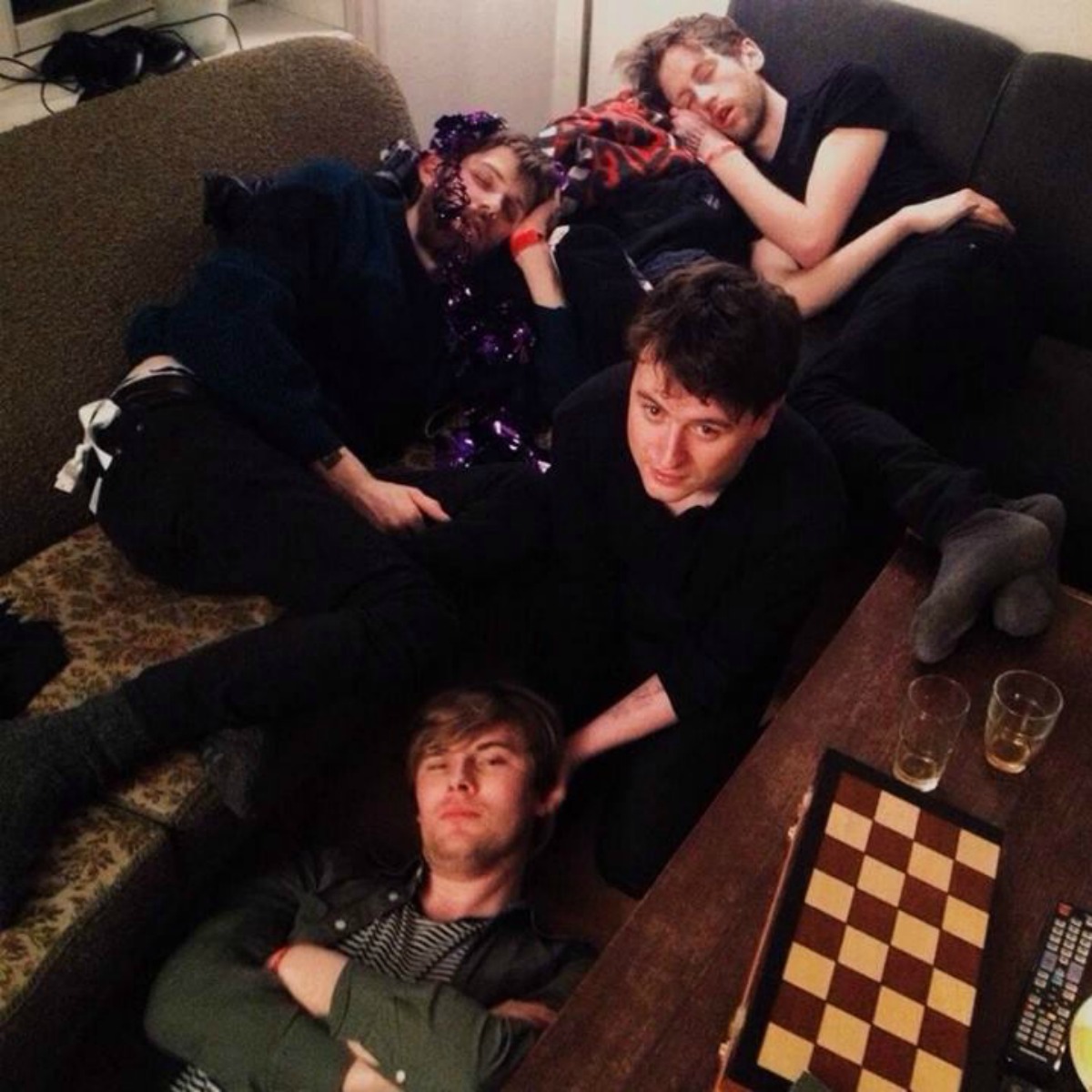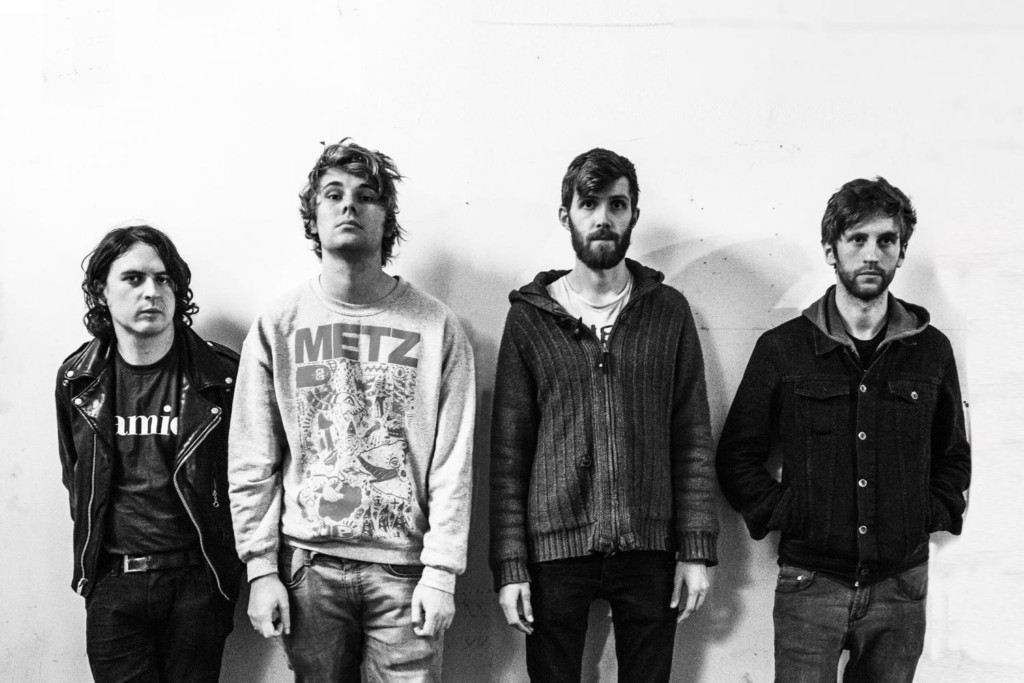ONLY NOISE: A Year In Song

Certain songs have a way of tangling themselves in our days, weeks, and months, eventually embedding themselves in our psyche, forever to be associated with the particular time and place in which they meant the most to us. Here, Madison looks back on 2017 by recounting the songs that dominated each month of the year – sometimes because of the anticipation of a live show, sometimes after crate-digging yielded a new discovery, and sometimes, maybe too often, because they helped mend a broken heart. – Ed.
January: Austra, “Future Politics”
This song represented two facets of optimism at the start of a bleak year. One was that my generation, once so blasé and apolitical, was finally mobilizing and becoming informed. The second was that pop music felt like it would be radicalized in 2017. Austra made me feel like dancing was an act of dissent, and while I know intellectually that is an illusion, it was a welcome notion after the election of Donald Trump. It’s difficult to resist this track’s rubbery drum pads and laser beam synths, qualities that made the title track from Future Politics seem like the anthem for an era of awareness when it came out. While I can’t say it solved anything, at least Austra’s lead single had us looking to the future in time when the present seemed unbearable.
February: Sam Cooke, “Get Yourself Another Fool”
Ah, February: a month synonymous with frigid weather, annual depression, and Valentine’s Day. The latter has always been the bane of my existence, though this past annum has been slightly less miserable now that I am no longer designing lingerie (a cruel profession as a single woman). In February 2017, I was feeling bitter and slighted, and so I nursed my wounds with Sam Cooke’s “Get Yourself Another Fool” from 1969’s Night Beat. Its dry piano and walking bass line provided the perfect poison for a biting break up song. Just what I needed to hear come February 14th.
March: Xiu Xiu, “Wondering”
Solomon Burke, “I’ll Be Doggone”
March was a bonkers month. I got laid off from a job that would rehire and fire me within the next two months. I met a dream man who would break my heart in the next three. I ate frankincense at a drag queen party. The freedom, romance, and fear of March 2017 can only be summed up with two songs, the first being the irresistible pop cacophony of Xiu Xiu’s “Wondering.” The lead single off of this year’s Forget LP was a perfect combination of wild fury and glittering disco melodies to get me through an unmoored month.
Mid-March I found myself jobless and smitten in the dream man’s dining room. He handed me a beer and cued up Solomon Burke’s 1969 recording of “I’ll Be Doggone,” a song that despite its age, followed me for the remainder of 2017. I played it while cooking, tidying, and getting ready for a night out. Sometimes I would blast it when no one was home just so I could sing along. It was without a doubt the best old song I discovered this year. The fact that its discovery can only be attributed to one person in my life is unfortunate, but that’s just the joy and danger of music and memory.
April : Happyness, “Falling Down”
I’d been anticipating Happyness’ sophomore LP ever since I heard their debut, so when this year’s Write In was more somber than expected, I wasn’t sure how to feel about it. After about a billion plays however, the record clearly fell under the “grower” category. Throughout Write In’s many rotations on my turntable this spring and summer, I fell in love with its opening track “Falling Down.”
“Falling Down” sounds like a late night observation, seen through too many layers of smoke and booze. Its hazy build of rhythm guitar is lulling, and remains so even when the drums finally kick in. It is a song that takes its time, and when bassist Jon EE Allan unleashes his half-awake croon and the squealing synths take over, the wait really pays off.
May: Blanck Mass, “Please”
“Please” is not only the sonic outlier on Blanck Mass’ third LP World Eater – it might just be Benjamin John Power’s magnum opus. This song dominated my May (and the remainder of 2017, truthfully) after I saw Power perform it at the Red Bull Music Academy for Sacred Bones’ 10-year anniversary gig. I was bewitched by his set, and though I loved the abrasive, blood-curdling songs in Power’s repertoire, “Please” was a dose of calm and beauty amidst the chaos – its gorgeous vocal melodies conflicting with shrapnel soundscapes and a choir of AI angels. “Please” is at once sorrowful, joyous, and frightening, which suited the state of 2017 all too well.
June: Steve Reich, Music for 18 Musicians
Summer is a strange time to seek out no wave compositions while everyone else is listening to “Despacito,” but I did so out of pure necessity. June was the beginning of a hellacious summer, one that commenced with heartbreak and culminated in underemployment and family catastrophe. I needed a break from evocative music, from songs that reminded me of a specific person, place, or time. I was on a quest for a song that made me feel nothing, and I found it in Steve Reich’s lauded hour-long piece. Its wash of polyrhythms and blips of human voice made a mosaic of sound – something that let me focus on every individual tile and the whole picture simultaneously, creating a calm that is the closest I’ve ever come to meditation.
July: Ocean Music, “When I Went to California”
This song was unfortunately stuck in my head for most of July. It isn’t unfortunate because it’s a bad song – it’s a good song – but one tied to an ill-fated evening. It was the kind of night typically reserved for rom-com screenplays, only with a far worse outcome.
It was a Tuesday. I thought it’d be nice to take myself out to a neighborhood club I’d never been to before. A date with myself, the sad last stab of a single lady nursing heartbreak. I wore lipstick. The headlining band was called Ocean Music, and their name sounded vaguely familiar, though I could not figure out why. I particularly enjoyed their sleepy ballad, “When I Went to California” as I listened to their Bandcamp offerings. It was enough to get me out of the house midweek.
I sidled up to the bar, ordered a Tecate, and before I could take a sip a man said my name. Only, it was my name with a question mark behind it, like, “Madison?” This is never a good sign. It was the man who’d just dumped me, and he was the opening act. I had, though accidentally, gone to his show, a mistake made even more comically tragic considering my profession. I stayed for the entire gig out of politeness and then left without saying goodbye. This song played as I walked out the door.
August: Leonard Cohen, “On the Level”
I spent most of August in the kitchen of my sister’s Washington farm. As reciprocity for feeding, housing, employing, and entertaining me all month, I thought it was only fair to do the goddamn dishes. The wooden shelving across from her kitchen sink is home to a Bose CD player, which has been occupied by Leonard Cohen’s final album You Want It Darker since he died in 2016. “On the Level” is one of my favorite songs on that record, and I now directly associate with my sister’s doublewide cast iron sink. When I was alone on dish duty I would crank the volume on the Bose and belt, “They oughta give my heart a medal, for lettin’ go of you,” scrubbing our coffee mugs to the beat.
September: Benjamin Clementine, “Phantom of Aleppoville”
This stirring piece of music was on heavy rotation during my late summer walks. The only problem with listening to Benjamin Clementine’s avant-pop-jazz masterpieces while shuffling around in public is that they inspire immense urges to dance. I cannot tell you how many spontaneous bursts of limb thrashing I resisted while listening to “Phantom of Aleppoville” beyond the walls of my apartment. It was difficult to remain disciplined, especially midway through the song when Clementine bursts into tango piano flair and spirited shouts. I managed to keep it together in public, but if you looked close enough you would see my hips twitching ever so slightly.
October: Diamanda Galás, “Pardon Me I’ve Got Someone to Kill”
I can’t imagine a better artist to listen to throughout October than the High Priestess of Darkness herself, Diamanda Galás. Before I even thought of naming her the Queen of Halloween, I was just excited to see Galás’ Halloween night set at Brooklyn’s Murmrr Theatre. In the lead-up to All Hallows Eve, “Pardon Me I’ve Got Someone to Kill“ was the perfect song to sing at the Weinsteins of the world – a kind of feminist power anthem cloaked in black magic.
November: Animal Collective, “Leaf House”
In the weeks before Animal Collective’s Avey Tare and Panda Bear reunited at Knockdown Center, I needed a refresher course on their 2004 record, Sung Tongs, which they would be playing in full for the first time live. I must have listened to opening track “Leaf House“ a hundred times in November, following its dizzying rhythms through subway tunnels and side streets en route to and from work. During the rush hour grind this song seemed to mirror and quell the chaos of the city simultaneously.
December: Bill Evans Trio, “Come Rain Or Come Shine”
I bought Bill Evans Trio’s Portrait In Jazz LP as a birthday present to myself in mid November, but I didn’t really get around to listening to it in full until late November and December, during which time it never left my turntable. It would seem from these blurbs that I am partial to opening tracks on albums, and the same applies to this record. Its first song, “Come Rain Or Come Shine” is exemplary of Evans’ diverse, elegant, and downright gorgeous playing. Watching this video of his trio performing the song in 1965, Evans’ facial expressions make it plain to see his immense passion for the music he so effortlessly makes.

